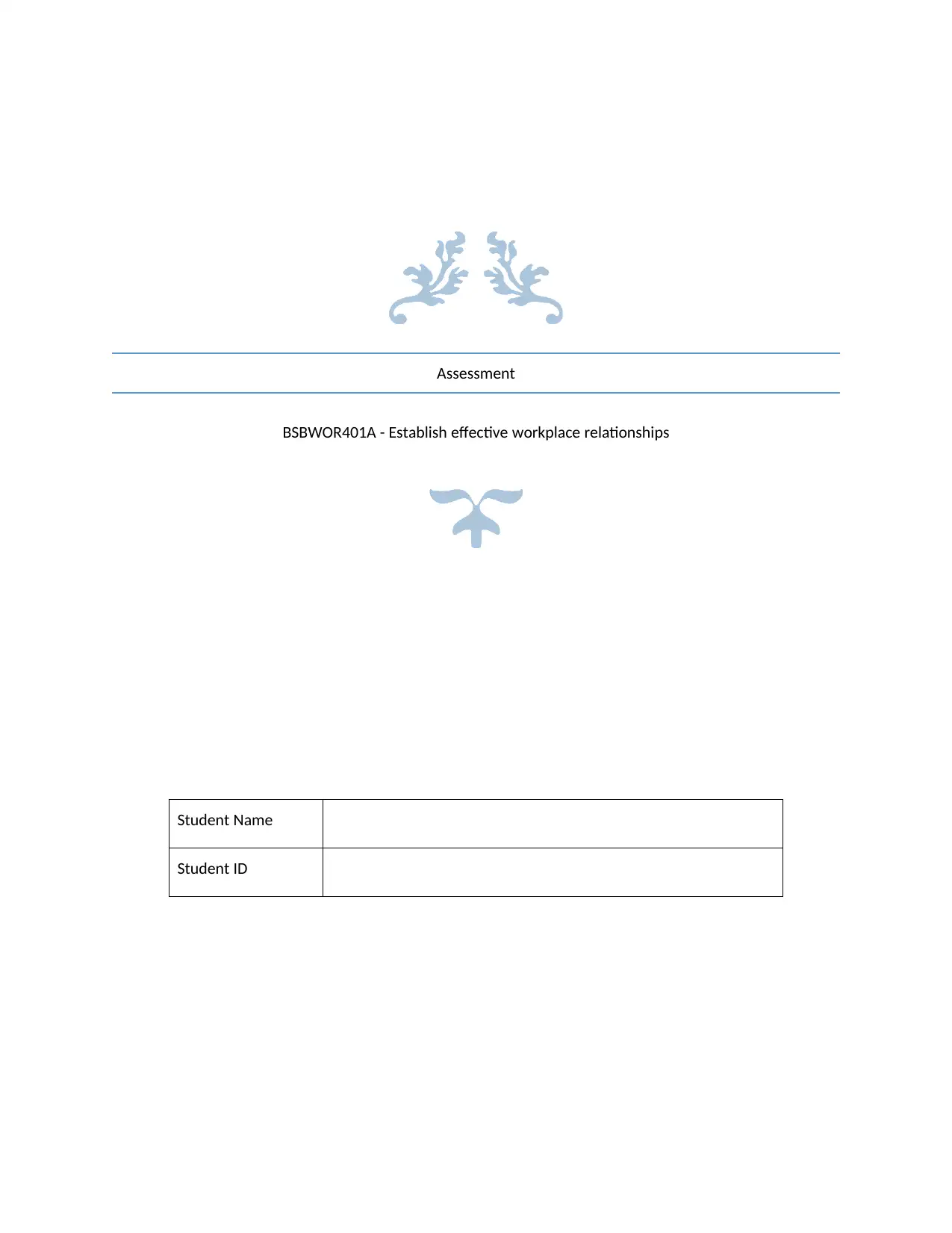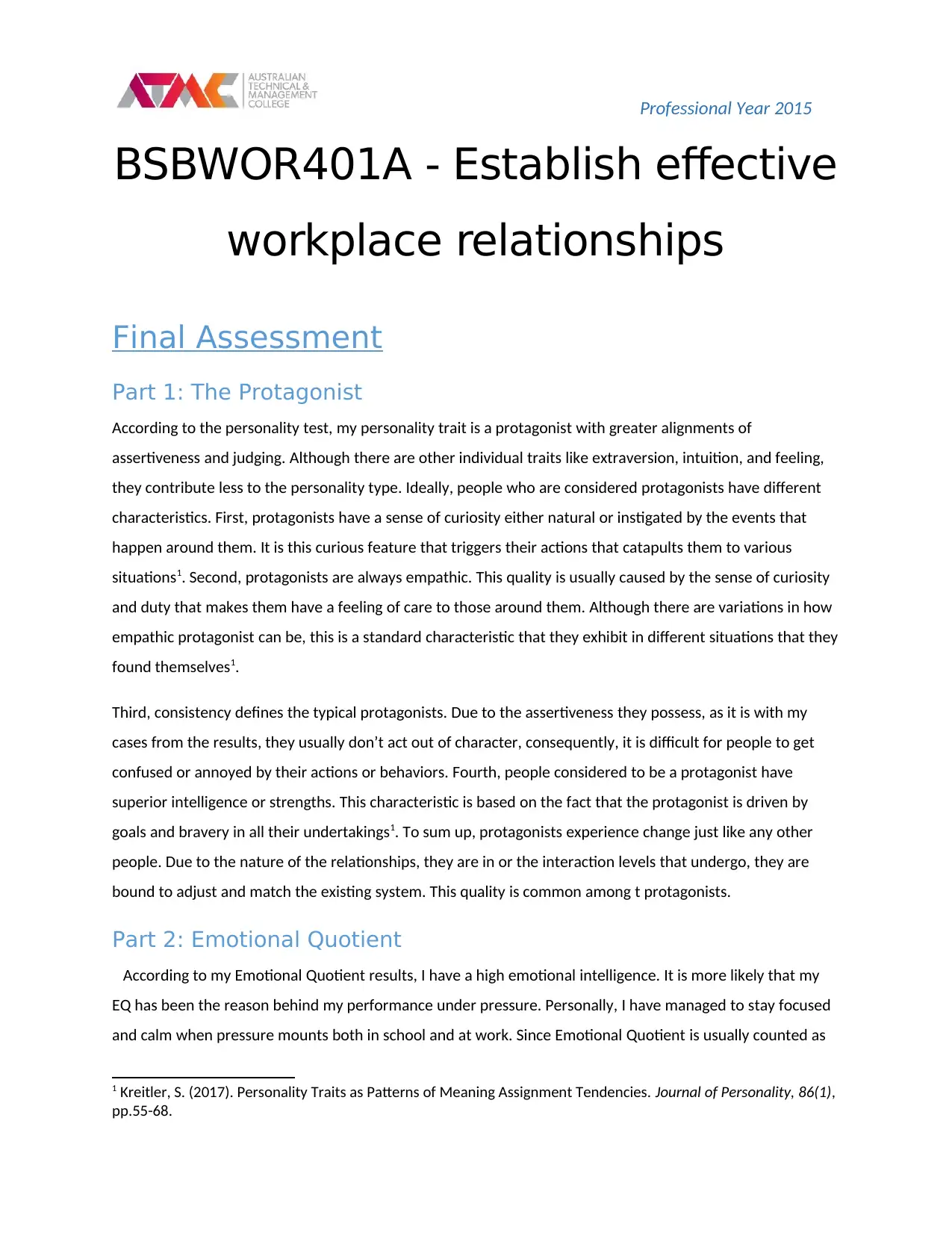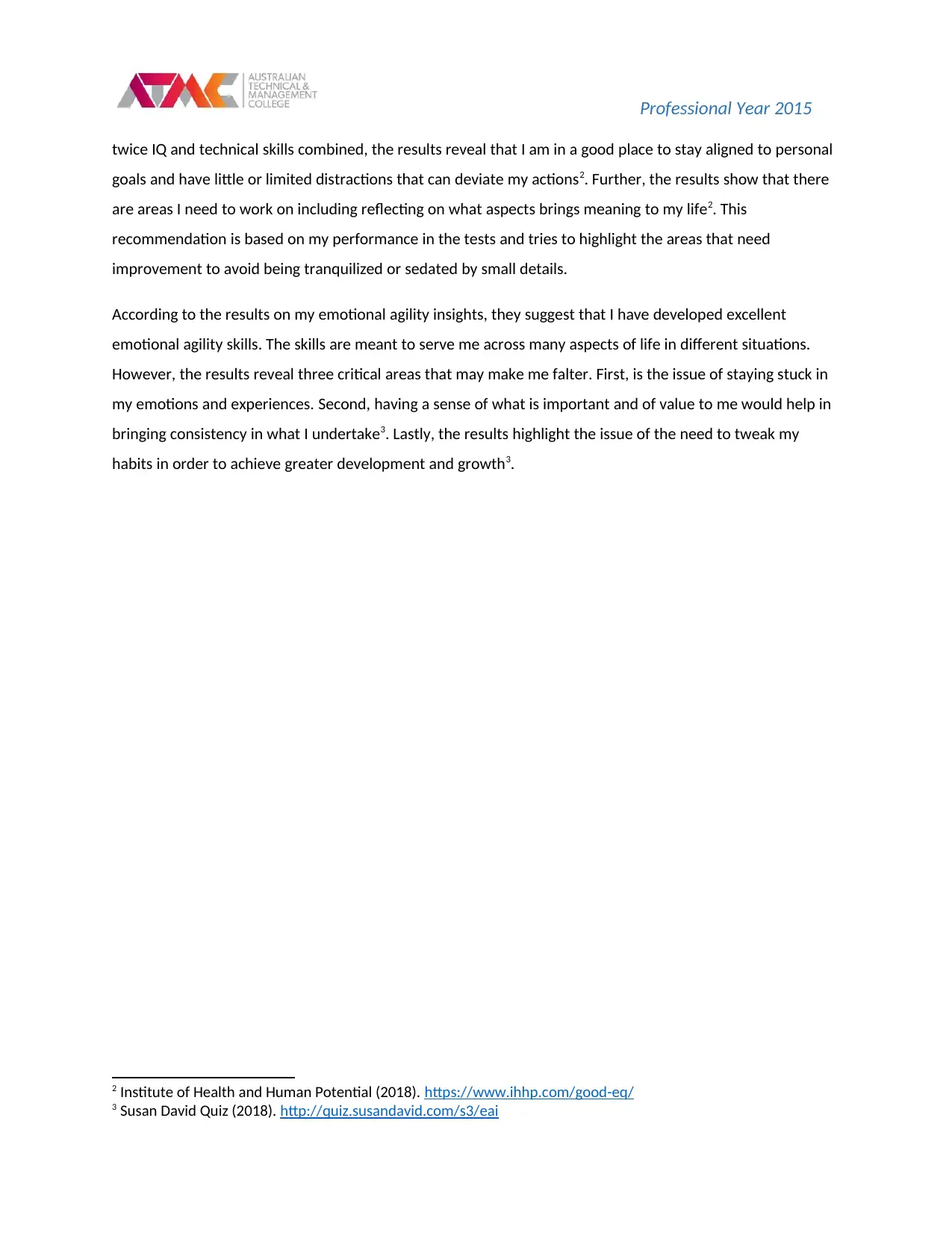BSBWOR401A: Establish Effective Workplace Relationships Assessment
VerifiedAdded on 2023/06/07
|3
|635
|433
Homework Assignment
AI Summary
This document presents a comprehensive assessment for the BSBWOR401A course, focusing on establishing effective workplace relationships. The assessment is divided into two parts. Part 1 analyzes the student's personality type, identified as a "Protagonist," exploring its key characteristics such as curiosity, empathy, consistency, and intelligence, and how these traits influence interactions and relationships. Part 2 assesses the student's Emotional Quotient (EQ) and Emotional Agility using online tests. The results reveal the student's strengths in emotional intelligence and highlight areas for improvement, such as reflecting on life's meaning and refining habits for greater development. The assessment provides insights into the student's self-awareness and emotional management skills, essential for navigating workplace dynamics. The student provides their results and interpretation of the personality and EQ tests.
1 out of 3










![[object Object]](/_next/static/media/star-bottom.7253800d.svg)